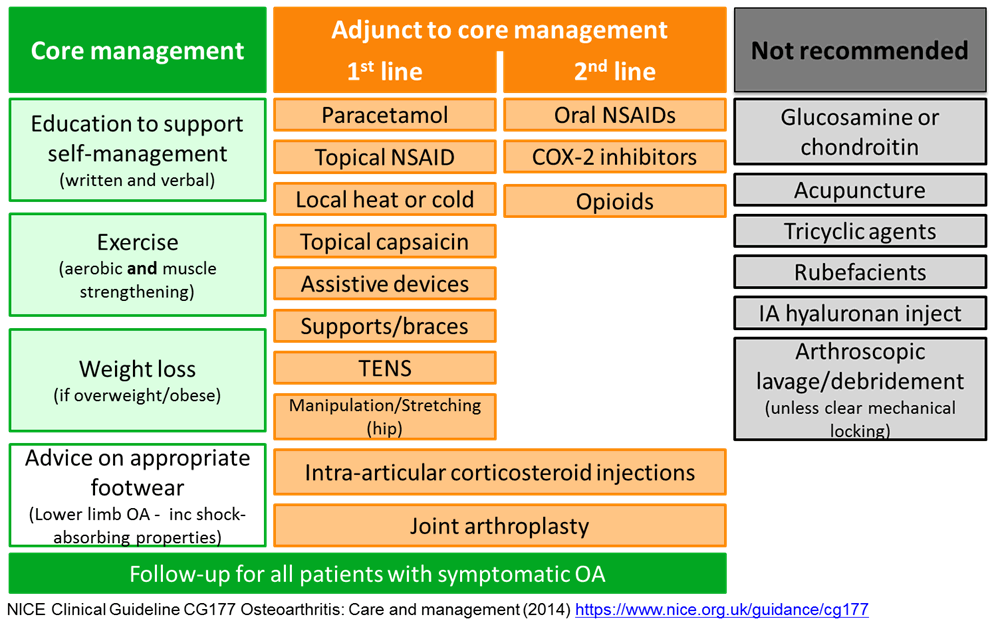Exercise and Self Management
NICE Guidelines

The National Institute for Health and Care Excellence (NICE) has recommended core, evidence-based management approaches that should be undertaken for everyone with osteoarthritis and a suite of approaches that can be used to support patients to undertake core treatment and manage their symptoms.
Core treatment for osteoarthritis includes supported self-management:
- Access to appropriate information e.g. the Keele University Osteoarthritis Guidebook and Versus Arthritis patient information leaflets
- Advice to exercise – both general aerobic fitness and local muscle strengthening exercises (for examples, those outlined by Versus Arthritis)
- Weight loss (if overweight or obese, that is, the patient has a Body Mass Index (BMI) of ≥25)
- Advice on appropriate footwear in the presence of lower limb osteoarthritis
First line adjuncts to core treatment approaches include:
- Drug-based approaches: paracetamol, topical non-steroid anti-inflammatories (NSAIDs), topical capsaicin
- Non-drug-based approaches: local heat or cold, assistive devices, supports/braces, transcutaneous electrical nerve stimulation, manipulation/stretching (for hip osteoarthritis)
Second line adjuncts to core treatment approaches include:
- Oral non-steroidal anti-inflammatories (NSAIDs), cyclo-oxygenase-2 (COX-2) inhibitors, opioids
In addition to these recommendations, intra-articular corticosteroid injections can be considered to support use of core treatments and joint arthroplasty can be considered if core management has been offered without adequate benefit.
Review and follow-up of all patients with symptoms of osteoarthritis is recommended, timed according to the needs of the individual patient.
References and Further Reading
NICE Clinical Guideline CG177 Osteoarthritis: Care and management (2014) https://www.nice.org.uk/guidance/cg177
NICE Quality Standard QS87 Osteoarthritis (2015) https://www.nice.org.uk/guidance/qs87